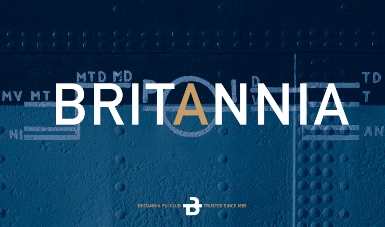 It has been a busy news month, both in terms of Institute news but also as far as marine-related news is concerned. This bulletin has some information of importance to the marine surveying profession.
It has been a busy news month, both in terms of Institute news but also as far as marine-related news is concerned. This bulletin has some information of importance to the marine surveying profession.
Highlights of the monthly news bulletin include:
– Obituary: Jeffrey Casciani-Wood 1930-2022
– Time to bring your CPD points up to date for last year
– Rosie Webb appointed as Office & Web Administrator at IIMS Head Office
– IIMS Canada Branch AGM and Seminar 12th March Continue reading “IIMS March 2022 News Bulletin published”



 A pioneering joint development project (JDP) between ABS and Nakilat – Keppel Offshore & Marine Ltd. (N-KOM) will examine how techniques developed by ABS for its industry-leading program of remote survey of vessels in service can be applied to surveys and inspections in the shipyard.
A pioneering joint development project (JDP) between ABS and Nakilat – Keppel Offshore & Marine Ltd. (N-KOM) will examine how techniques developed by ABS for its industry-leading program of remote survey of vessels in service can be applied to surveys and inspections in the shipyard. The 26 page February News Bulletin from IIMS has been published and it’s been a busy news month, both for the Head Office team and with breaking news from around the industry affecting the surveying profession.
The 26 page February News Bulletin from IIMS has been published and it’s been a busy news month, both for the Head Office team and with breaking news from around the industry affecting the surveying profession.




 Shipping is a cornerstone of global trade and, as such, the GHG emissions created by shipping are significant and rising, accounting for almost 3% of global anthropogenic emissions (Faber et al. 2020a). Recent projections suggest that by 2050, shipping emissions will increase by between 90-130% of 2008 emissions by 2050 (ibid.). However, in April 2018, the IMO adopted the Initial GHG Strategy which set the ambition to reduce total annual GHG emissions by at least 50% by 2050, while pursuing effort towards phasing out GHG emissions this century as a matter of urgency, consistent with the Paris Agreement temperature goal. With emissions projected to rise and international targets having been set, the question becomes, how these targets can be met by shipping?
Shipping is a cornerstone of global trade and, as such, the GHG emissions created by shipping are significant and rising, accounting for almost 3% of global anthropogenic emissions (Faber et al. 2020a). Recent projections suggest that by 2050, shipping emissions will increase by between 90-130% of 2008 emissions by 2050 (ibid.). However, in April 2018, the IMO adopted the Initial GHG Strategy which set the ambition to reduce total annual GHG emissions by at least 50% by 2050, while pursuing effort towards phasing out GHG emissions this century as a matter of urgency, consistent with the Paris Agreement temperature goal. With emissions projected to rise and international targets having been set, the question becomes, how these targets can be met by shipping?